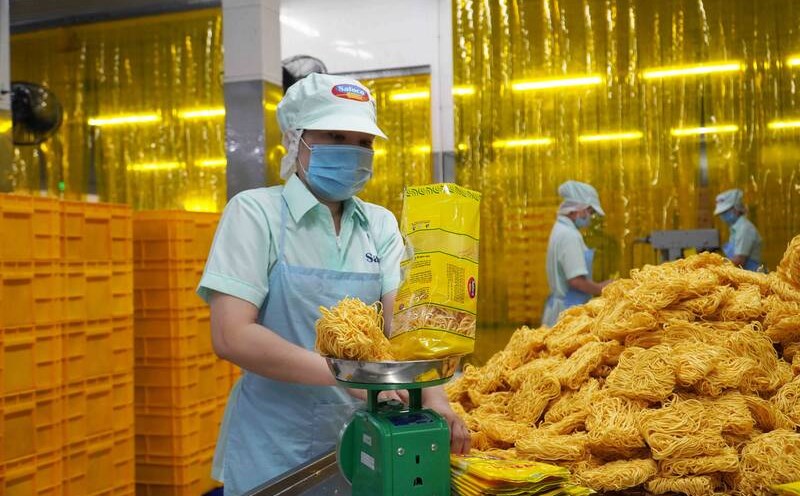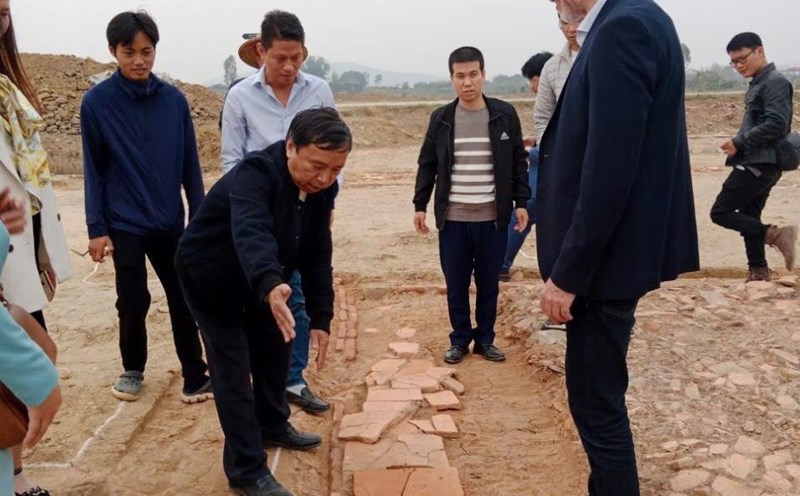In the context of strong global economic fluctuations, with challenges from technical barriers, trade protection and counterpart tax policies from major countries such as the United States, Vietnam's export activities, including Ho Chi Minh City, are under great pressure. To adapt, finding and expanding potential markets, typically the Halal market, is becoming a key strategy for Vietnamese businesses.
According to Mr. Tran Phu Lu - Director of the Ho Chi Minh City Investment and Trade Promotion Center (ITPC), in addition to difficulties in high logistics costs, regional competition and increased raw material prices, Vietnam's traditional exports also face a decline in global demand. In that context, the Halal market is considered a potential direction to help businesses maintain growth momentum and expand exports.
Indonesia - the world's most populous Muslim country with over 280 million people - has emerged as a potential Halal consumption market. Vietnam, especially Ho Chi Minh City businesses, has a great opportunity to exploit this market.
According to statistics from the General Department of Customs, in the first quarter of 2025, two-way trade turnover between Vietnam and Indonesia reached 4.2 billion USD, up 17% over the same period last year. Ho Chi Minh City alone will achieve 1.6 billion USD in bilateral trade in 2024, an impressive growth of 23% compared to 2023. These figures show positive growth momentum, but are still not commensurate with the great potential between the two economies.
Mr. Agustaviano Sofjan - Consul General of Indonesia in Ho Chi Minh City emphasized that the Halal industry will be one of the focuses of cooperation in the coming period. In addition to food, the two countries can also expand to Halal cosmetics, tourism services and Halal finance. Indonesia is committed to supporting Vietnam in sharing Halal certification standards, procedures and experiences.
Despite its wide potential, approaching the Halal market is not simple. Indonesia has very strict regulations. Most of the imported products must be Halal certified by BPJPH - Halal Product Guaranteeing Agency Indonesia. Non-standard products must be labeled Non-Halal, and labeling will be mandatory for all imported goods from abroad no later than October 17, 2026.
The Halal certification process in Indonesia requires Vietnamese enterprises to evaluate records, conduct field inspections, and have Halal supervisors according to SJPH No. 20/2023. After completion, businesses need to register the product on the SIHALAL system and comply with the official Halal label. This is a process that requires careful preparation and proper investment in the production, packaging and transportation processes.
Ms. Ly Kim Chi - Chairman of the Ho Chi Minh City Food and Food Association said: "Vietnam has great potential to develop Halal food exports. However, in reality, food exports by businesses to this market are only in the initial stages of exploitation. The rate of Vietnamese enterprises with Halal certification and the ability to access the global Halal market is still limited.
In response to strict requirements, businesses in Ho Chi Minh City are proactively approaching the Halal market through training certificates to be able to penetrate deep into this market. Proactively exploiting the Halal market will be a strategic step, helping Ho Chi Minh City businesses elevate their position on the global trade map in the coming period.
Halal market is a market for standard products for Hoi giao. This is a market that is being assessed to have a high growth rate, with great room for development due to the increasing population of the Islamic community. South Asia, the Middle East, Africa and Southeast Asia are considered the four regions with large numbers of Muslims.










